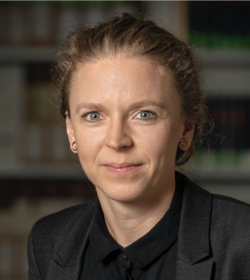
Name: Mette Løvschal
Position: (Role(s) at CEH and at AU) Professor, steering committee member
Contact info: lovschal@cas.au.dk
Environmental Humanities Research: My research engages with humans’ relationship with landscapes in a deep time perspective. I investigate the cultural history of anthropogenic heathlands as deeply cosmologically and economically embedded – and the forms of social worlds and governance that arise from these landscapes. I am also deeply interested in historical processes of land enclosure and reclamation, including the earliest emergence of landscape parceling across Northern Europe in the Bronze Age and current day processes of fences in East Africa.
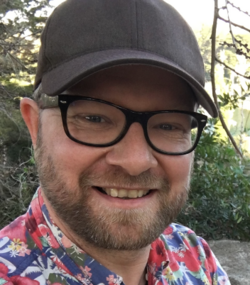
Name: Jonas Andreasen Lysgaard
Position: CEH steering committee member and Associate professor in Education Science with specific focus on sustainability and education at the Danish School of Education, Aarhus University.
Contact info: jonas@edu.au.dk
Environmental Humanities Research: My work centers on the role and potential of environmental and sustainability education. This covers a wide array of formal, non-formal and informal learning arenas from educational institutions, civil society activities to learning in nature. My background in history, political theory and educational studies have merged into broad conceptualizations of both the environmental and sustainability challenges that we face and the approaches to navigate and understand them. As an educationalist, I draw on a strong heritage from critical theory and pedagogy emphasizing democratic, participatory and engaging foundational values. Through my work I have combined such classic approaches with emerging new materialist insights and an ongoing interest in that which is not represented in research and practice, that being both human and not delimited as human. Through my engagement in the Centre for environmental humanities I hope to bring an emphasis on change understood as and though education and pedagogy into the wider discussions of how to live in times of shifts and turns.
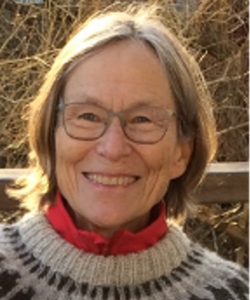
Name: Sally Dean Anderson
Position: CEH Steering committee member; at AU - Associate professor in Educational Anthropology, Danish School of Education, Aarhus University.
Contact info: saan@edu.au.dk
Environmental humanities research: My research focuses on how children make sense of worlds-not-of-their-own-making, and how they culture these worlds as they go, while figuring out what to do next. I am interested in how children learn to imagine the world, in what they pick up on in the environments for learning made available to them. Education, in this sense, is about honing one’s attention to what matters here, to what counts where, when and to whom.
My studies have shifted from critically interrogating the endosociality of Danish school classes that enforce being-together-as-children in age-graded groups of ca. 24, to question the nature of extended sociality, of how school children engage with invisible beings, gods, spirits, and mythical figures. I bring these focal points to questions of how children engage with the physical environment and living entities that comprise their daily surroundings. Of interest here is how ‘nature’ is sorted and classified into nature-that-warrants-our-imagination and nature-that- may/must-be-ignored. In exploring current concerns with connecting ‘children’ to ‘nature,’ I juxtapose how these concerns play out in mainstream educational literature, urban planning and indigenous lifeways. This heuristic juxtaposition forces certain facts to the fore: children are not a homogenous social category; urban municipalities have different geographies, demographics, histories, and politics; nature conceptualization varies across languages and topographies, and different children engage differently with their natural surroundings. Behind my work is an urgent sense that in this present moment of frenetic world-making, in our human desire to fix things, and human struggle to survive through adaptation, by focusing on outcomes rather than ongoingness and by objectifying nature in particular ways for children, we humans may be getting some things wrong even as we are working hard to get them right.
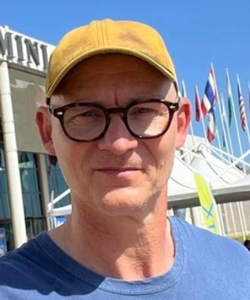
Name: Peter Mortensen
Position: CEH steering committee member and associate professor of English in the Department of English, School of Culture and Communication.
Contact info: engpm@cc.au.dk
Environmental Humanities Research: Trained as a specialist in nineteenth- and twentieth-century Anglophone literature and culture, I try to understand the many diverse ways in which literary conventions and culturally specific storytelling traditions shape our environmental imaginaries, for better or worse. What stories have we traditionally told ourselves about our relationship with the natural environment, I ask, and where can we find narrative templates that may help to inform ideas, solutions and ways forward in or from the current biodiversity and extinction crises? My academic interests and emphases range across texts, genres, and periods, including the environmental legacy of the 200-year-old Romantic movement, the stories of twentieth-century Danish writer Karen Blixen, and the recent wave of “cli-fi” texts and films that imagine the consequences of anthropogenic climate change.

Name: Henrik Bødker
Position: (Role(s) at CEH and at AU): Member of the Steering Committee and affiliated researcher
Contact info: hb@cc.au.dk
Environmental Humanities Research: I am interested in the relations between climate change and journalism both in the present and historically. What is communicated, how and why and how is this linked to broader political, social and cultural contexts within a media landscape where journalism increasingly has to compete with other public voices. In order to investigate such questions, I combine journalism studies and environmental humanities, two fields that neither in Denmark nor internationally have collaborated very much; and the Center for Environmental Humanities at AU is a great place to pursue such a cross-fertilisation.
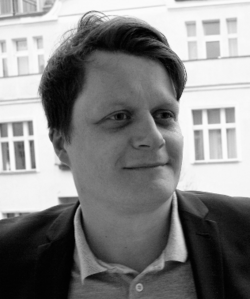
Name: Georg Fischer
Position: CEH steering committee member and Associate professor for Brazilian Studies at the Department of Global Studies, Aarhus University
Contact info: fischer@cas.au.dk
Environmental Humanities Research: My research interests include nature-society relations, science and knowledge, and North-South inequalities. My regional focus is Latin America and its connections to the wider world with a particular emphasis on nineteenth- and twentieth-century Brazil. My ongoing research deals with agriculture, migration and environmental change in savanna-like landscapes in several South American countries. Using comparative, transnational and global history approaches, I examine state-led agricultural colonization programs since the Second World War as contested materializations of "modern" visions of rurality. I have previously worked on the history of knowledge about Brazil's mineral resources, and I keep a strong interest in material history/Stoffgeschichte, natural collections, infrastructures and supply chains. I am one of the co-PIs of the EHJustice network and wish to explore how climate advocates make use of the past to make global justice claims and to what extent such framings constitute a novel practice of "planetary memory".